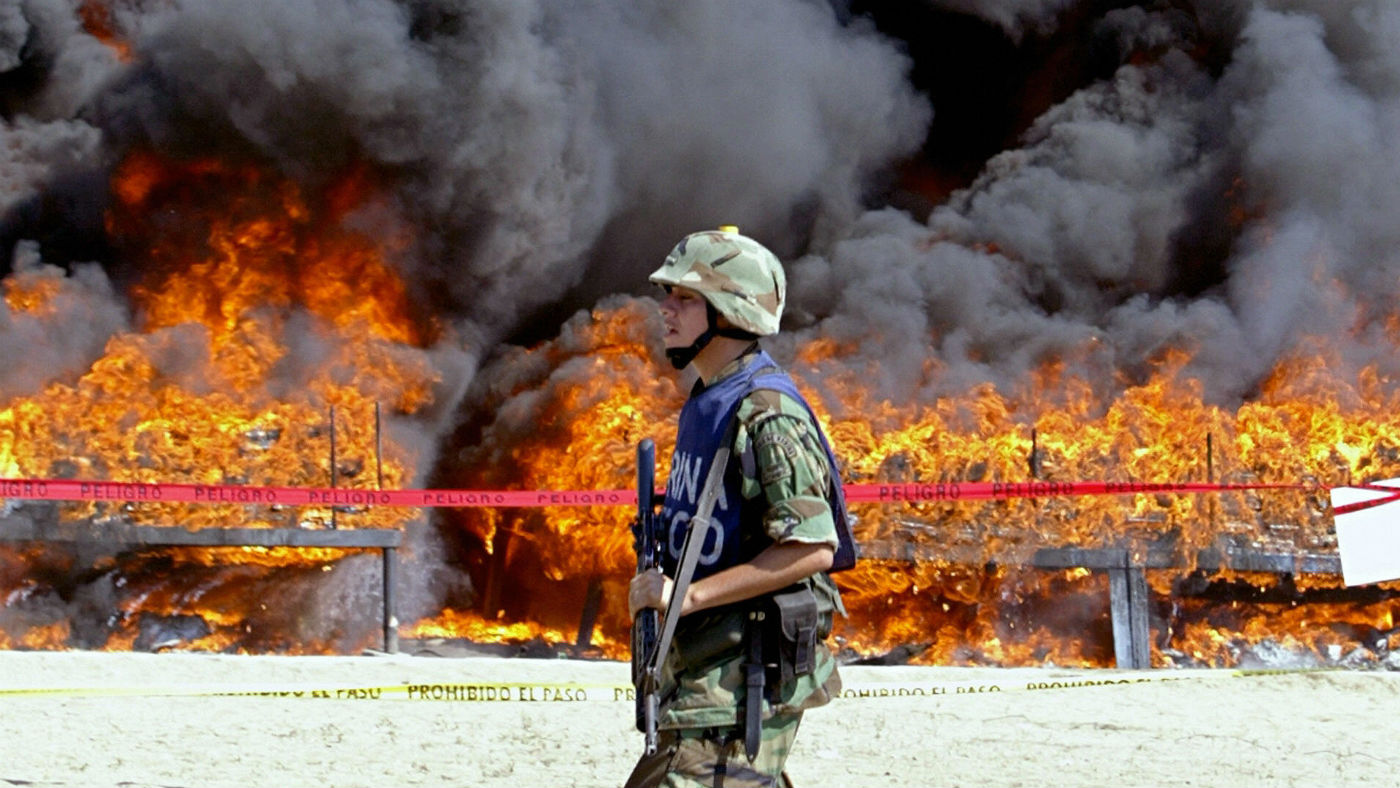Could legalising cocaine solve Mexico’s drug problem?
Court approves recreational use for two people in landmark ruling hailed as ‘historic step’ in war on drugs

A free daily email with the biggest news stories of the day – and the best features from TheWeek.com
You are now subscribed
Your newsletter sign-up was successful
A court in Mexico has granted two people the right to use cocaine recreationally, in a landmark ruling hailed as an historic step by an organisation campaigning to end the country’s deadly war on drugs.
According to Mexico United Against Crime (MUCD), which brought the case, the ruling by the Mexico City court will allow both claimants to “possess, transport and use cocaine” but not sell it.
Justifying his rulings, Judge Victor Octavio Luna Escobedo said that cocaine can be used for a variety of reasons including “tension relief, the intensification of perceptions and the desire [to have] new personal and spiritual experiences”.
The Week
Escape your echo chamber. Get the facts behind the news, plus analysis from multiple perspectives.

Sign up for The Week's Free Newsletters
From our morning news briefing to a weekly Good News Newsletter, get the best of The Week delivered directly to your inbox.
From our morning news briefing to a weekly Good News Newsletter, get the best of The Week delivered directly to your inbox.
Mexico News Daily says his decision is backed by a report from the National Commission Against Addictions that says that cocaine consumption does not pose a “significant risk to health, except in the case that it is used chronically and excessively”.
However, the court order also requires the country’s health authority, Cofepris, to authorise the two claimants’ use of cocaine. A Cofepris official told the AFP news agency that it had taken steps to block the court order, arguing that such authorisation would be outside of its legal remit.
The BBC says the ruling “will only come into effect if a panel of judges side with the original decision”.
“If they do approve the ruling, it will only apply to the two people who brought the cases, whose identities were withheld,” it adds.
A free daily email with the biggest news stories of the day – and the best features from TheWeek.com
While hailing the decisions the “first of their kind” and a “historic step”, MUCD “has a bigger picture in mind”, says German news outlet DW.
MUCD director general Lisa Sanchez said the ruling constituted “another step in the fight to construct alternative drug policies that allow [Mexico] to redirect its security efforts and better address public health”, but the next step is to prove “that prohibition has failed and alternative approaches can work better”.
Mexico has been hit by a wave of violence since the government deployed its army to fight the country's powerful drug cartels in 2006. Since then, more than 250,000 people have been murdered, including a record 33,755 last year, according to the Council on Foreign Relations.
The record death toll and failure to stem the flow of drugs has led to growing support for an alternative approach, with the country “moving slowly away from its strict prohibitionist drug policies in recent years”, reports Al Jazeera.
Mexico's leftist President Andres Manuel Lopez Obrador has called for “radical” changes in the country’s approach to tackling drugs, going as far as looking into decriminalising drugs by replacing arrests with enforced treatment such as attending a detox programme.
The country's Supreme Court has already authorised recreational marijuana use in individual cases, and the president’s party, Morena, has introduced a bill in Congress to legalise recreational cannabis use.
However, DW says Obrador, elected last year on a promise to fight corruption, organised crime and the drug trade, “has faced an uphill battle inherited by his predecessor”.
A US Congressional report published in August said challenges for the president include an ad hoc approach to security, “absence of strategic and tactical intelligence on the opaque criminal market” and “endemic corruption” within the country's judiciary and law enforcement.